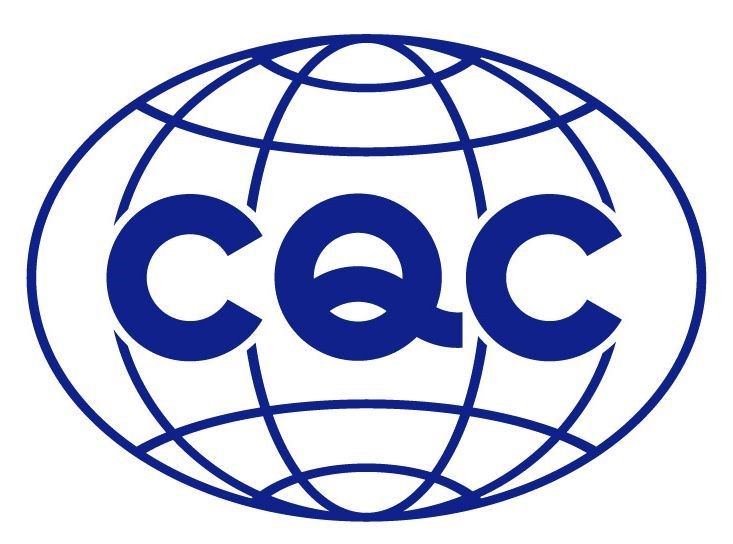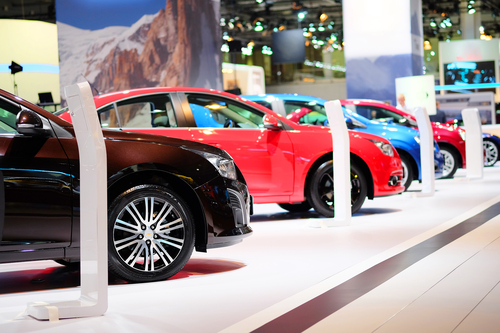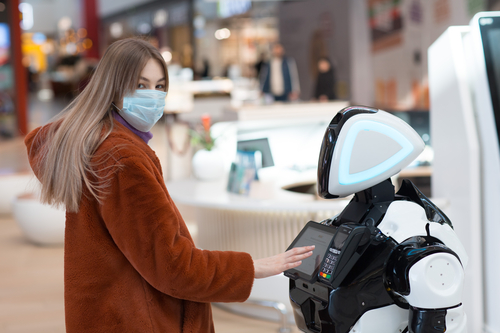CQC issues general certification rules for CCC Self-Declaration products
On October 30, 2020, the China Quality Certification Center (CQC) issued General Certification Rules for Type II CQC Certification, designated CQC12-000001-2020.

These regulations for the Type II voluntary certification contain the requirements for the applicant regarding the technical person in charge , technical requirements for different products and requirements for factory audits. Factory audits are specified to take the form of on-site inspections, document reviews or remote inspections. The scope of inspection also includes the validity and general status of any CCC self-declaration certificates of certified products.
This is applicable to products listed in appendix 2 of announcement No. 44 of 2019 of the CNCA, i.e. it applies to CCC self-declaration products. The CQC12-000001-2020 provides the rules for voluntary Mark Certification of these products by CQC, effective from November 1, 2020.
Appendix 2 of CNCA announcement no. 44
List of products that apply the self-declaration evaluation method of compulsory certification product.
| Number | Name of product | |
| Product category | Sub product category and code | |
| 1 | Electrical tools | Electric drill(0501) |
| 2 | Electric grinder(0503) | |
| 3 | Electric hammer(0506) | |
| 4 | Electric welder | DC arc welder(0603) |
| 5 | TIG arc welder(0604) | |
| 6 | MIG/MAG arc welder(0605) | |
| 7 | Plasma arc cutting machine(0607) | |
| 8 | Circuit switch and electrical device for protection or connection | Thermal fuses(0205) |
| 9 | Cartridge fuse-links of miniature fuses(0207) | |
| 10 | low-voltage apparatus | Leakage protector (0306) |
| 11 | Circuit breaker(0307) | |
| 12 | Fuse(0308) | |
| 13 | Low-voltage switchgear (disconnectors, switch-disconnectors and fuse-combination units)0302) | |
| 14 | Other circuit protection devices(0304、0307、0309) | |
| 15 | Relay(0303) | |
| 16 | Other switches(0305) | |
| 17 | Other device(0304、0305) | |
| 18 | low-voltage switchgear assemblies (0301) | |
| 19 | Low power motor | Low power motor (0401) |
| 20 | Equipment for Household and similar uses | Motor-compressor(0704) |
| 21 | Motor vehicle and safety accessories | Car seat belt (1104) |
| 22 | Motor vehicle exterior lighting and light signal devices (1109、1116) | |
| 23 | Car seat and seat headrest (1114) | |
| 24 | Motor vehicle indirect vision device (1110、1115) | |
| 25 | Car drive recorder (1117) | |
| 26 | Car reflecting marking (1118) | |
| 27 | Safety glass | Car safety glass (1301) |
| Information technology equipment 、 Audio and video equipment | Equipment with rated voltage less than or equal to 5VDC, rated power consumption less than 15W (or 15VA) and no rechargeable battery (class III equipment) | |
For more information on how CCC certification, the CCC Self-Declaration and voluntary CCAP or CQC certification may affect your company, or for more information about CCC certification in general, the process, and the associated costs, please visit our website and our News Section where you will find current updates twice a week.
Please do not hesitate to contact us for further details and consultation. You can contact us via e-mail, or call us (UK: +44 2071931135, Rest of Europe: +49 69 2713769150, US: +1 773 654-2673).
Please don’t hesitate to also use our chat-window in the bottom right corner if you have any questions. (Please check your browser settings if you can’t see the window)
You can also check out our free CCC-Brochure, which can be downloaded right here as a PDF file or you consult our book (in English) “A Brief Guide to CCC: China Compulsory Certification”, which can be found directly here on Amazon.
Here you can download our brochure about the CCC Self-Declaration.
Here you can download our brochure about the voluntary CCAP or CQC certification.
China’s electric vehicle industry on the fast track
In China, more and more new car buyers are opting for an electric car, this speaks to the rapid development of the country’s electric vehicle industry. The production and sales of electric cars in China is equivalent to half of the global market. In September 2020, sales of electric cars sold in China grew 67 percent year-on-year. Despite being affected by the Covid 19 pandemic, many Chinese electric vehicle manufacturers increased their production and sales figures. Investors were also pleased with last year’s performance. In November, the share price of NIO, an electric vehicle startup, was close to $50, and the company’s market value was over $60 billion. This means the young company is outperforming many international established automakers.

State Development & Investment Corp Ltd. chairman Gao Guohua said Chinese brands had difficulty competing with foreign manufacturers in the past. In the meantime, however, many companies have evolved and are using proprietary software and powertrain components made domestically, Gao added. Li Bin, NIO’s founder, said they have invested about $3.05 billion in research and development since the company’s establishment, as well as the same amount in customer service and brand awareness. NIO now sells more than 10,000 vehicles per quarter.
Meanwhile, numerous high-tech and Internet companies from China teamed up with the automotive industry to promote the joint development of electric vehicles. Alibaba, the Chinese Internet giant, and Chinese automaker SAIC Motor jointly developed the Banma car operating system, which provides intelligent and connected solutions for the entire automotive industry. In the area of CCC certification of automotive parts and vehicles, Chinese requirements are particularly high. The certification of a complete vehicle is a complex project that requires professional support at all stages.
For more information on how CCC certification, the CCC Self-Declaration and voluntary CCAP or CQC certification may affect your company, or for more information about CCC certification in general, the process, and the associated costs, please visit our website and our News Section where you will find current updates twice a week.
Please do not hesitate to contact us for further details and consultation. You can contact us via e-mail, or call us (UK: +44 2071931135, Rest of Europe: +49 69 2713769150, US: +1 773 654-2673).
Please don’t hesitate to also use our chat-window in the bottom right corner if you have any questions. (Please check your browser settings if you can’t see the window)
You can also check out our free CCC-Brochure, which can be downloaded right here as a PDF file or you consult our book (in English) “A Brief Guide to CCC: China Compulsory Certification”, which can be found directly here on Amazon.
Here you can download our brochure about the CCC Self-Declaration.
Here you can download our brochure about the voluntary CCAP or CQC certification.
Robots with 5G connectivity take the spotlight at an industrial conference
As China continues to expand its 5G network, industry is also increasingly discovering the benefits of the technology. A typical application of 5G is connected robots, which are becoming more autonomous and intelligent. For example, at the 2020 China 5G+ Industrial Internet Conference in Wuhan, two particular robots attracted the attention of visitors. The robots welcomed visitors and were able to answer basic questions as well as guide guests to specific locations. The robots are manufactured and operated by Chinese company Cloud Minds, which develops intelligent and cloud-connected robots for human interaction.

In addition to interactive conversations, the two robots can also complete motion sequences such as handshakes, hugs and dancing. By applying artificial intelligence, cloud computing and 5G technology, the robots can also recognize people’s facial expressions and emotions and engage in dialogue accordingly. Thus, the robots can be used to welcome guests, guide people, and provide entertainment. The actual “thinking” of the robots, or the computational work, is done in a cloud environment and sent in real time using the 5G network.
Last year, when the city of Wuhan was severely affected by the COVID 19 outbreak, Cloud Minds robots assisted workers in hospitals there. The robots were able to ask patients about their symptoms, take their temperature, as well as entertain them during waiting times. According to Cloud Minds, the robots were also successfully used to entertain patients while they were placed in isolation and quarantine areas. Robots are subject to mandatory certification in China. The CCC here stands for China Compulsory Certificate and is comparable to the European CE system, but there are important differences. Products requiring certification may only be imported into China, sold in China and used in business activities in China after the product has undergone CCC certification. We are pleased to advise you on the scope and requirements of a China CCC certification without obligation.
For more information on how CCC certification, the CCC Self-Declaration and voluntary CCAP or CQC certification may affect your company, or for more information about CCC certification in general, the process, and the associated costs, please visit our website and our News Section where you will find current updates twice a week.
Please do not hesitate to contact us for further details and consultation. You can contact us via e-mail, or call us (UK: +44 2071931135, Rest of Europe: +49 69 2713769150, US: +1 773 654-2673).
Please don’t hesitate to also use our chat-window in the bottom right corner if you have any questions. (Please check your browser settings if you can’t see the window)
You can also check out our free CCC-Brochure, which can be downloaded right here as a PDF file or you consult our book (in English) “A Brief Guide to CCC: China Compulsory Certification”, which can be found directly here on Amazon.
Here you can download our brochure about the CCC Self-Declaration.
Here you can download our brochure about the voluntary CCAP or CQC certification.
3 Chinese companies among the top 5 smartphone manufacturers
China’s Huawei, Xiaomi and Oppo occupy three spots among the world’s top five smartphone manufacturers based on shipments in the third quarter of 2020, according to a study released last Monday by consulting firm Gartner. Samsung remains the leader with 80.8 million devices sold and a global market share of 22 percent followed by Huawei with 51.3 million and 14.1 percent.

Xiaomi posted a huge 34.9 percent year-on-year increase and now ranks third with 44.41 million devices shipped or 12.1 percent market share. The Chinese electronics company, which produces numerous other devices for entertainment and the household in addition to smartphones, thus overtook rival Apple and relegated it to fourth place. Apple shipped 40.5 million devices in the third quarter, with Oppo in fifth place with 29.89 million devices.
According to analysis by consulting firm Gartner, a total of 366 million smartphones were shipped worldwide in the third quarter of 2020, a slight decrease of 5.7 percent compared to the previous year. Anshul Gupta, senior analyst at Gartner, shared there are initial signs of recovery in the markets in the Asia-Pacific area as well as Latin America. The return to normalcy in much of China also contributed to the improvement in smartphone production numbers. Current production could make up for supply shortages in the third quarter and drive sales figures further upward in the coming year, Gupta said. Smartphones fall under the CCC certification requirement in China. CCC stands for China Compulsory Certificate. The CCC certificate was introduced in 2002 and applies to both imported and Chinese products.
For more information on how CCC certification, the CCC Self-Declaration and voluntary CCAP or CQC certification may affect your company, or for more information about CCC certification in general, the process, and the associated costs, please visit our website and our News Section where you will find current updates twice a week.
Please do not hesitate to contact us for further details and consultation. You can contact us via e-mail, or call us (UK: +44 2071931135, Rest of Europe: +49 69 2713769150, US: +1 773 654-2673).
Please don’t hesitate to also use our chat-window in the bottom right corner if you have any questions. (Please check your browser settings if you can’t see the window)
You can also check out our free CCC-Brochure, which can be downloaded right here as a PDF file or you consult our book (in English) “A Brief Guide to CCC: China Compulsory Certification”, which can be found directly here on Amazon.
Here you can download our brochure about the CCC Self-Declaration.
Here you can download our brochure about the voluntary CCAP or CQC certification.



